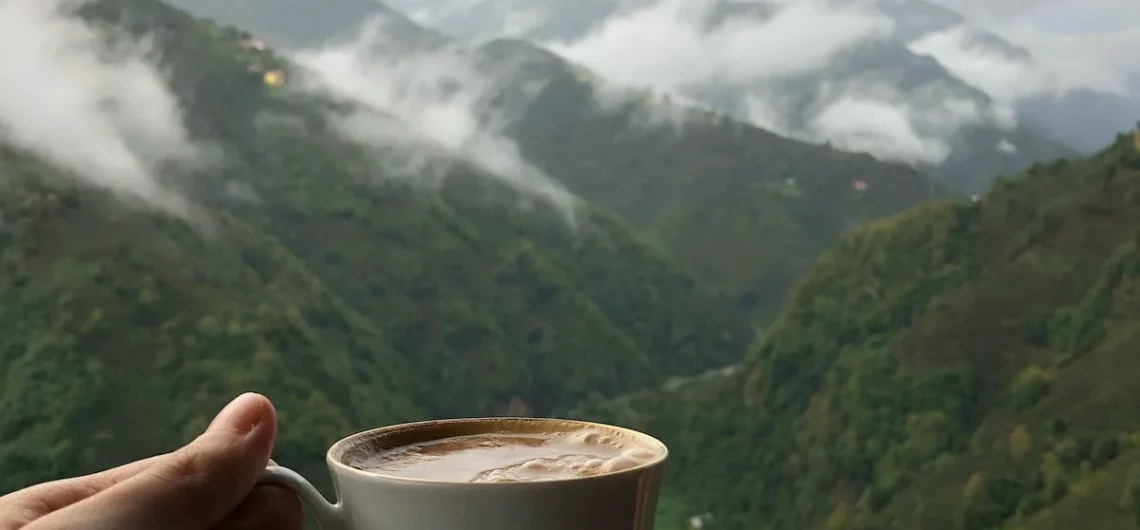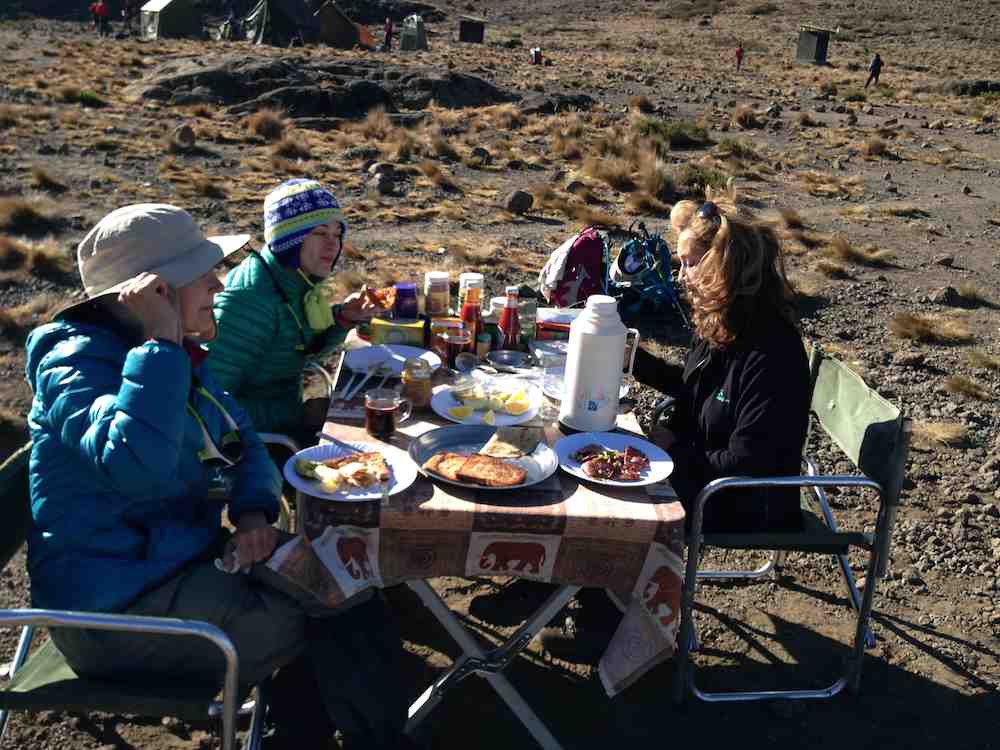The question of whether drinking coffee is detrimental while ascending Kilimanjaro has sparked discussions among climbers. Does caffeine hinder acclimatization? Is it a culprit for dehydration? Let’s provide clarity on this caffeinated dilemma.
Just to give you an insight, research suggests that using caffeine at high altitudes may not only be safe but also advantageous. Caffeine-related fears of dehydration are overblown. At altitude, its impact on cerebral ventilation, blood flow, and psychostimulant activity is likely to be beneficial. Research is needed to determine if caffeine may treat or prevent AMS. At high altitudes, caffeine may also improve workout performance. Importantly, if a frequent coffee drinker is traveling to a high altitude like Mount Kilimanjaro, Mount Kenya, Mount Meru, Ol Doinyo Lengai or the Rwenzori Mountains, they should not stop drinking coffee since the withdrawal symptoms are extremely similar to those of acute mountain sickness and can be mistaken for AMS. Further research is needed on the topic of altitude, coronary artery disease, and coffee in exercising people.
Addressing Caffeine’s Impact on Hydration
Altitude sickness mitigation often emphasizes hydration, with recommendations to consume 4-5 liters of water daily. Caffeine, known for its diuretic properties, has led to concerns that it might exacerbate dehydration, ultimately contributing to acute mountain sickness (AMS).
While caffeine does act as a diuretic, this effect seems to primarily affect non-regular users. Habitual coffee drinkers tend to develop a tolerance to caffeine’s diuretic impact. An Everest base camp study demonstrated that both caffeinated and non-caffeinated subjects exhibited similar hydration levels and urine output. Thus, habitual caffeine consumption might not significantly promote dehydration.
 Caffeine’s Role in Ventilation
Caffeine’s Role in Ventilation
Caffeine, a stimulant, heightens pulmonary ventilation – the process of inhaling and exhaling air. This effect can potentially enhance oxygen intake, akin to how the altitude sickness drug Diamox operates. While caffeine’s contribution to acclimatization remains unexplored, studies have shown promising signs. Sizeable caffeine doses have been associated with increased hypoxic ventilatory response and resting ventilation. These findings suggest that caffeine could aid acclimatization by boosting oxygen supply, but whether this counters AMS remains uncertain.
Caffeine and Insomnia
High altitude often brings sleep disturbances due to breathing difficulties. Caffeine, known for its alertness-inducing qualities, could contribute to sleep problems. While caffeine enhances wakefulness and energy, climbers need sufficient rest to aid acclimatization. Hence, it’s advised to avoid consuming caffeine in the late afternoon or evening, particularly for non-regular coffee drinkers. Ensuring adequate sleep is essential for effective acclimatization.
Navigating Coffee Consumption at Altitude
For regular coffee enthusiasts, the consensus leans toward maintaining coffee consumption while climbing Kilimanjaro. Research suggests that coffee might not hinder acclimatization and could even be beneficial. However, abruptly ceasing coffee consumption might trigger caffeine withdrawal, potentially causing discomfort.
Non-regular coffee drinkers need to approach caffeine more cautiously during the ascent. While caffeine can boost performance, its stimulating effects might interfere with sleep. Smaller and less frequent doses are advisable, with a recommendation to halt consumption by early afternoon. This counsel extends to caffeine-containing supplements, energy drinks, gels, and of course, coffee.
How to Stay Hydrated on Kilimanjaro
Staying hydrated on Kilimanjaro is a crucial aspect of a successful climb. The higher altitude can lead to dehydration, increasing the risk of Acute Mountain Sickness (AMS). To combat this, it’s recommended to drink 4 to 5 liters of water daily during your Kilimanjaro hike. Prioritize keeping your Kilimanjaro daypack well-stocked with enough water to ensure proper hydration.
Caffeine and its Impact on Breathing
Does Caffeine Cause Faster Breathing?
Caffeine, a well-known energy stimulant, has the potential to affect breathing patterns. Studies have shown that a significant dose of caffeine can heighten hypoxic ventilator response and resting ventilation. Interestingly, this process aligns with the mechanism of a commonly used medicine for altitude sickness – by enhancing pulmonary ventilation.
Coffee and Acclimatization: A Complex Relationship
Is Coffee Good for Acclimatization?
While caffeine might seem appealing for aiding acclimatization due to its performance-enhancing properties, its impact at high altitudes like Kilimanjaro is more nuanced. Drinking coffee on the mountain trails can pose risks, as it could contribute to Acute Mountain Sickness (AMS). Caffeine’s stimulating effects might offer advantages by boosting performance, but they could potentially interfere with sleep. To prioritize Kilimanjaro health and well-being, it’s recommended to avoid such beverages.
Is Coffee Good or Bad for you when climbing Kilimanjaro?
Coffee, often cherished for its energizing properties, can be an ally for Kilimanjaro climbers, provided it’s approached thoughtfully. For those accustomed to daily coffee, continuing the habit seems unproblematic and might even offer advantages. For occasional consumers, moderation is key, ensuring that caffeine’s potential benefits don’t overshadow the importance of sound sleep and acclimatization.
As you ascend Kilimanjaro, remember that we offer various beverages, including coffee and tea, at each meal. Whether you choose to sip coffee or opt for other options, staying hydrated, rested, and prepared is paramount to a successful climb.
![]()


 Caffeine’s Role in Ventilation
Caffeine’s Role in Ventilation